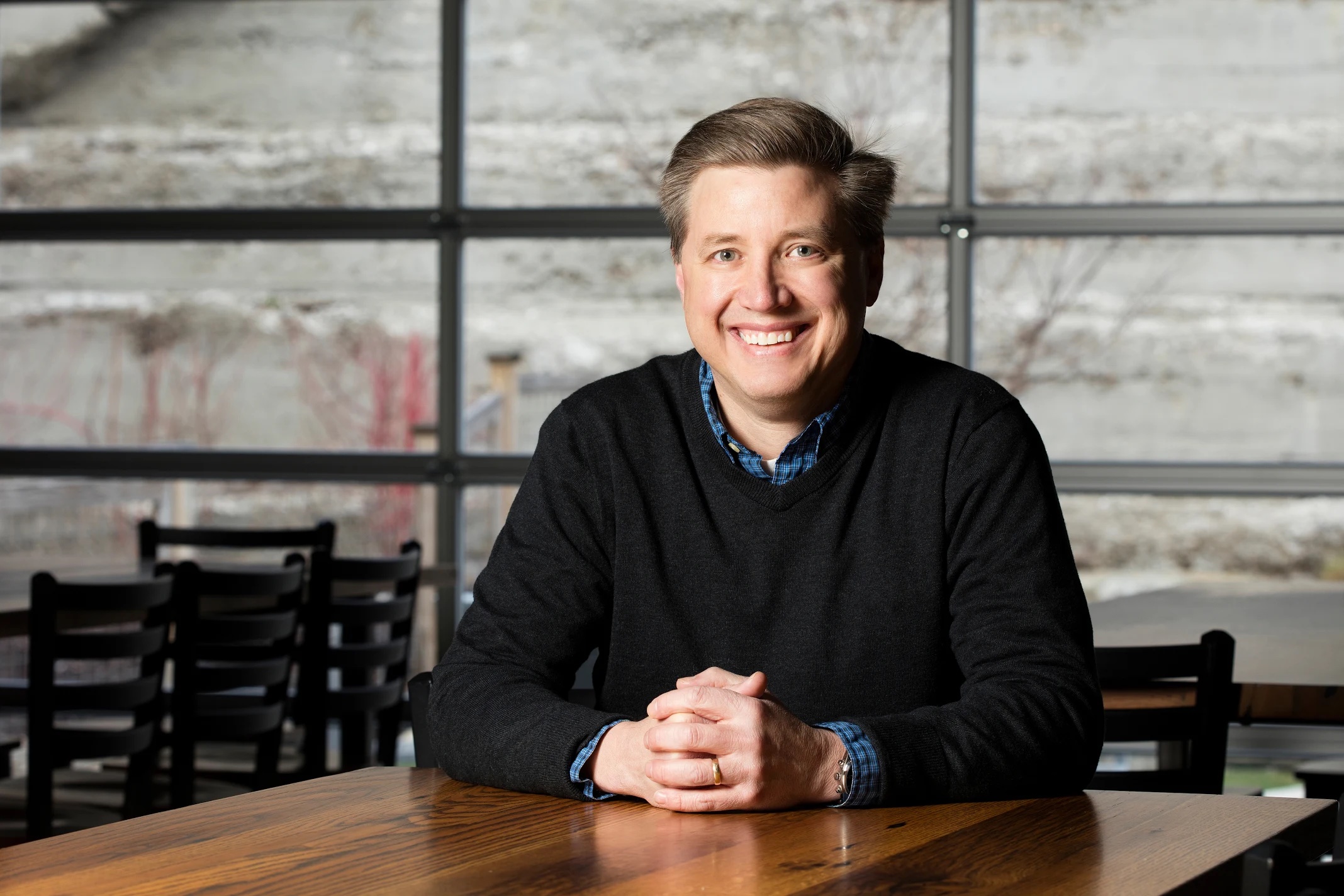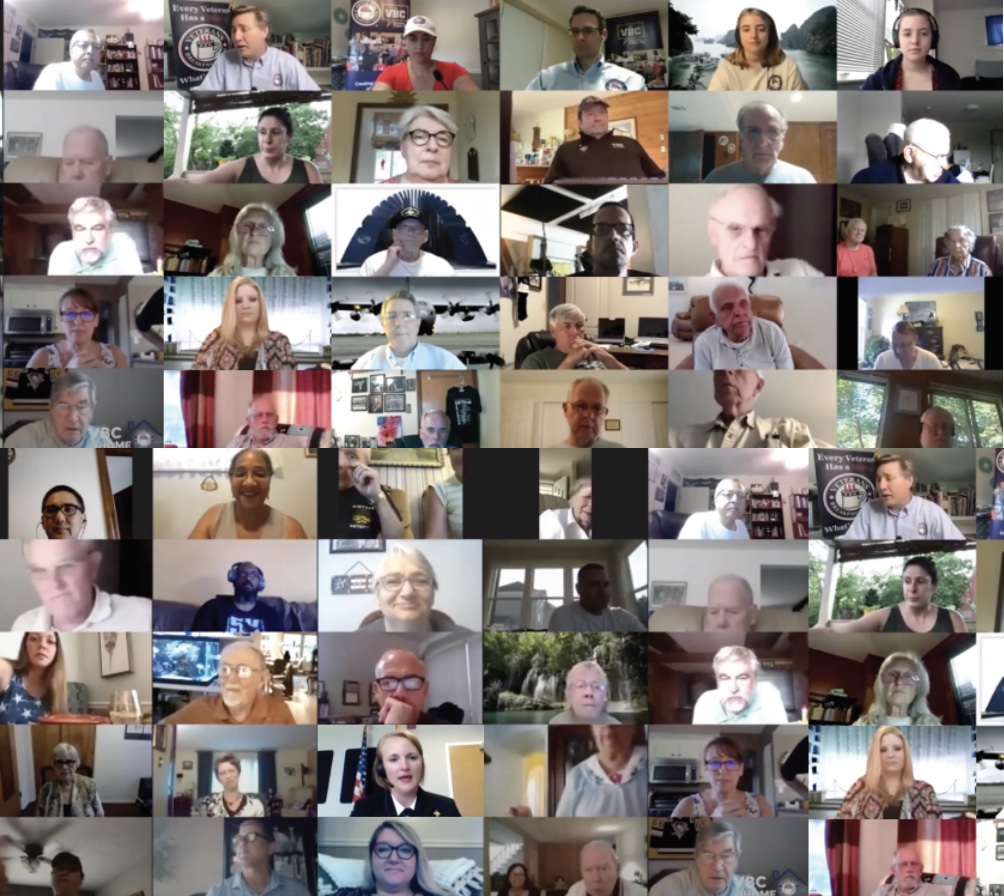Even from the grave Bill Mauldin is connecting with World War II veterans.
Historian Todd DePastino has been the medium, pivoting from his 2008 biography of the late, great cartoonist to tap into the local Pittsburgh WWII veteran community, not only about the impact of Mauldin’s art, but also the effects of war.
Mauldin, a sergeant in the 45th infantry division during World War II, understood that for many veterans the war did not end when they came home. The work of the Pulitzer Prize-winning Stars and Stripes cartoonist resonated so deeply with soldiers and veterans alike that his cartoon strip of two war-weary grunts “Willie & Joe” found wild popularity throughout the 20th century.
These conversations spawned the creation of the Veterans Breakfast Club that same year, and what began as a local breakfast club 13 years ago has expanded to now include thousands of veterans and nonveterans across America and the globe.
Working with veterans was like “learning a whole new language” DePastino told HistoryNet in a recent interview.
The VBC, he says, “was really born from this idea that people like me, who don’t come from a military background, have something to learn from those who have served in the armed forces.”
How did the Veterans Breakfast Club come about?
My biography of Bill Mauldin came out in 2008 and I started giving book talks around the country. Those who remembered Mauldin the best and were most devoted to his memory were veterans, especially World War II veterans. I would give my talk and then oftentimes veterans would come up to me and share their stories. Invariably I became convinced that what these men and women had to say was a lot more interesting than what I had to say.
In 2008 I was asked to speak to a group of 30 WWII veterans brought together by a local volunteer. Afterwards, they passed around the microphone and the veterans started sharing stories. It was fascinating and I thought to myself that I’d love to do this again. With that volunteer we called these veterans together again, and invited them to bring their families, spouses, children, grandchildren. We got about 60 people in a hotel ballroom — and then had a two-hour program where we went around the room and just shared stories.
There was something being transmitted in the room, to the younger people especially, that was akin to wisdom. That’s invaluable. I mean, you don’t get wisdom the easy way. You get wisdom the hard way, by losing and hurting.
We’ve held thousands of events over the course of 13 years. You think you’ve heard every story, but you haven’t. You absolutely haven’t. There’s no end to the individual experience that can be shared at an event like this. There are a few tears, but there’s always a lot of laughter. I like to say that veterans are the funniest people I know.

That dark humor that comes out.
Oh, you bet. Dark humor and a lot of absurd humor — very funny interservice rivalry humor. Some of them you’re just like, “That can’t be real”, but nobody would make it up. It really is amazing.
In 2008 we started with WWII veterans, but now younger veterans have started filtering into our events. And we started holding many more events and expanding our operations. In 2019 we had 75 events in 39 different locations, mostly in western Pennsylvania. But that was kind of the peak of our in-person face-to-face operations.
How has the VBC adapted due to the pandemic?
It has revolutionized the Veterans Breakfast Club. The mission has stayed the same — to create a community that listens to veterans and their stories; to connect, heal, educate, and inspire; we still do that. But how we do that and how we deliver on the mission has changed dramatically because of the pandemic.
On March 10, 2020, we had our last event at a local university in Pittsburgh, an event honoring women veterans for Women’s History Month. Fifteen days later we had our first Zoom meeting. If you think back to March, there was a lot of uncertainty. We didn’t know what the future would hold, and the world felt like it was grinding to a halt. I thought that people would want to share stories about COVID-19. Nobody wanted to talk about that. They wanted to tell stories.
Since then, we’ve probably held 200 Zoom calls. I just got off one this morning with Denis McDonough, the Secretary of Veterans Affairs, in attendance. We could never have had him at our events in person, but he there he was answering questions about VA services. It was great. We had Harry Stewart, a Tuskegee Airman, telling his story for two hours. These are things that we never could have coordinated in person.
It’s a community that’s held together by these digital bonds, but it’s a community nonetheless.
With WWII veterans in particular there feels to be a growing need to connect and share their stories. How has VBC facilitated this?
We’ve had several WWII veterans share their stories on Zoom, and then pass away later in the year. It’s heartbreaking. If you have a 101-year-old veteran it makes you really value every minute that you have. I got an email today from Marthe Cohen who was a French spy behind the lines and a Holocaust survivor. I think she’s 100, maybe 101. I was talking to my staff and they wanted to schedule her for September. I told them that we’ve got to create a new event much sooner than that.
I once called a 99-year-old WWII veteran to set up an interview time and I asked if the certain date was okay for him. His response? “Well, if I’m still alive, sure.”
One of the things I love about that generation is how casual they are about that. They have already come face-to-face with their own mortality. They’re the most inspiring people I know.
It took me a long time to appreciate that the veterans were getting something out of this transaction. In the beginning I foolishly thought that they were kind of doing it for me, they were answering my questions for me. Later a veteran came up to me and said, “You know, this is really healing.” I didn’t understand what the heck he was talking about at first, but there’s this human need to tell one’s story. I think there’s a need to be heard, to be listened to, but we don’t advertise it as therapeutic.
It’s a fun social event that everybody is welcome to join. One of the things that makes the Veterans Breakfast Club different is that we welcome non-veterans. I’m really proud of that. Our events are open to the public and about 40 percent of the people that attend are not veterans.
How can someone who’s not within the veteran community find the VBC?
They can find us on social media — that’s how people often find us. They can also go to our website, which is veteransbreakfastclub.org. Anyone can join us on Zoom and participate and ask questions, or they can just watch and listen. Our events are simulcast on Facebook Live and on YouTube Live. We have all of our meetings archived on there as well.
As we hopefully transition out of the pandemic, do you see the VBC using a hybrid model for events? Some in person, while also still holding virtual events?
Yes, definitely. I always thought we would go back to in person events once the pandemic was over. Go back to the status quo. We’re no longer going to just do that because our online programming is so fascinating and varied. We reach so many more people online, than we did prior. But we are also looking to do our in-person events again.
[hr]
Tune in to the VBC’s upcoming events, with its latest featuring Army Sniper John Hawes, whose story is chronicled in The Outpost. Tonight at 7pm ET.





